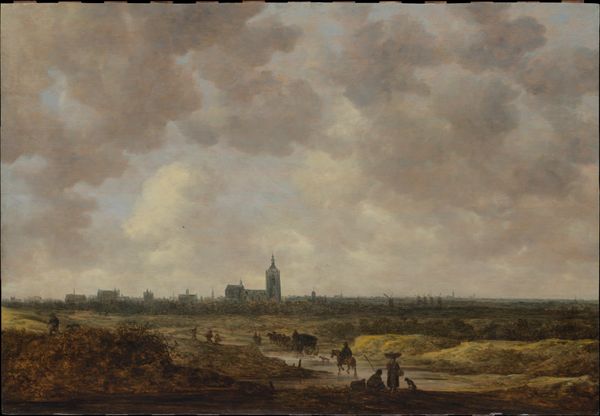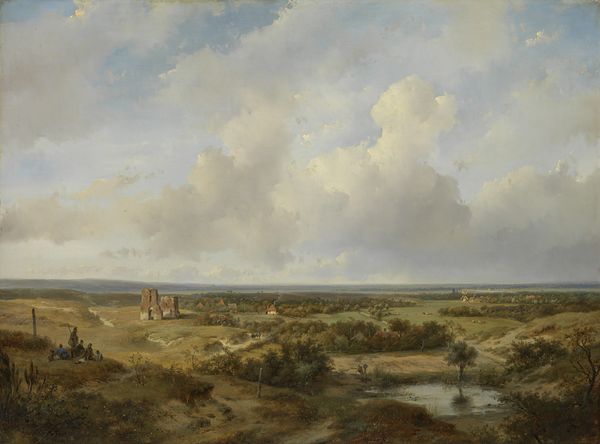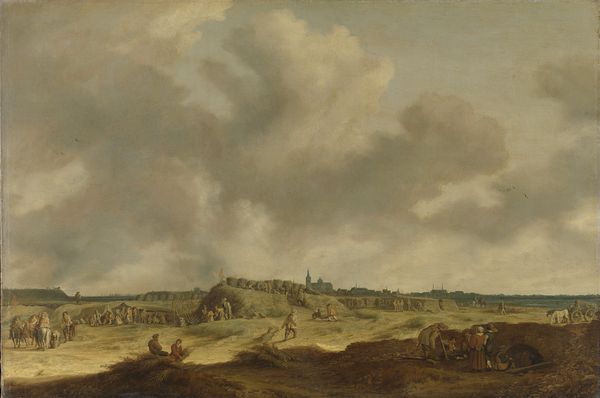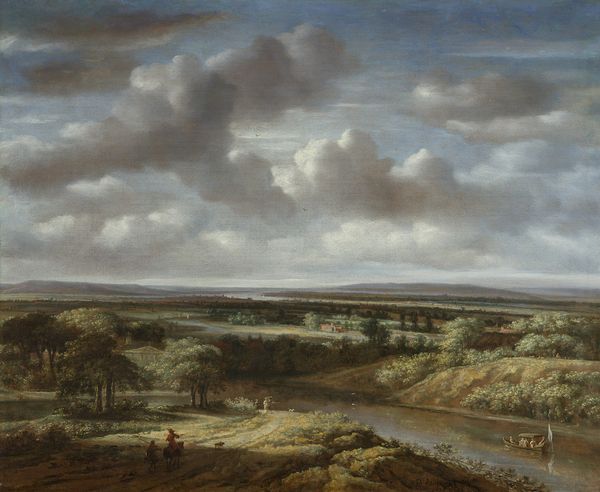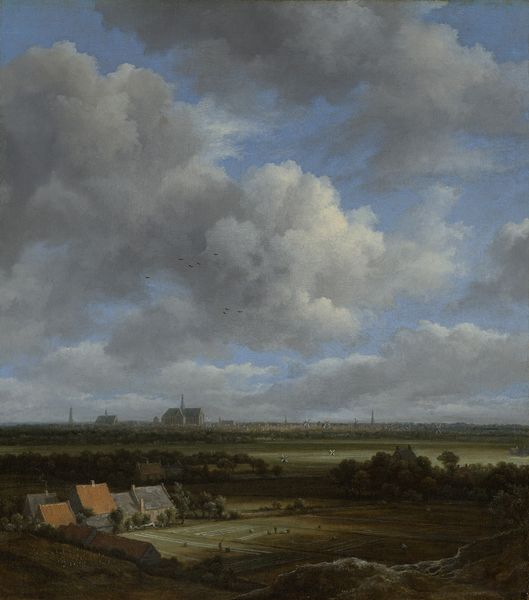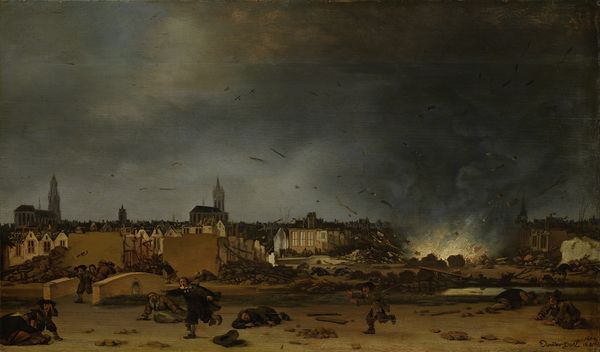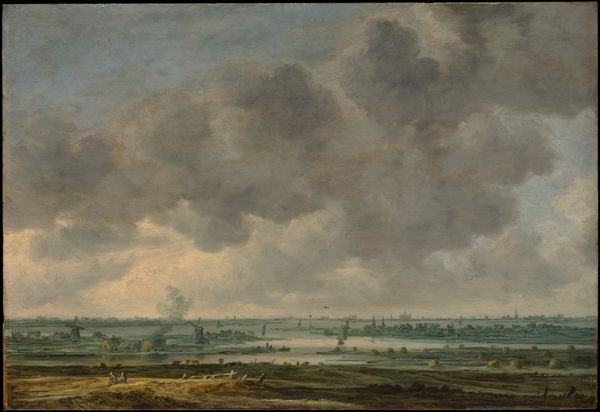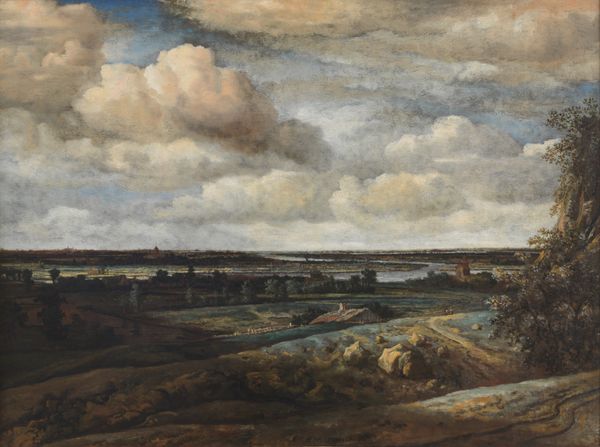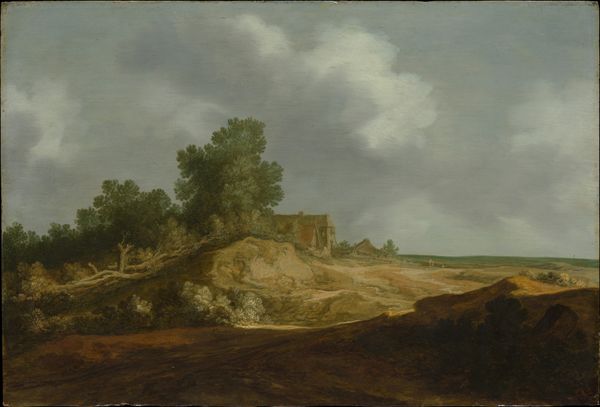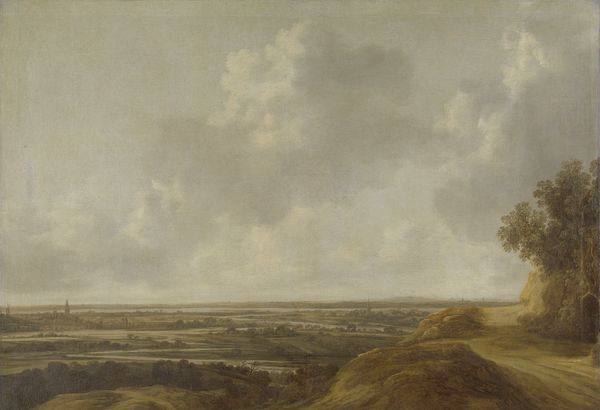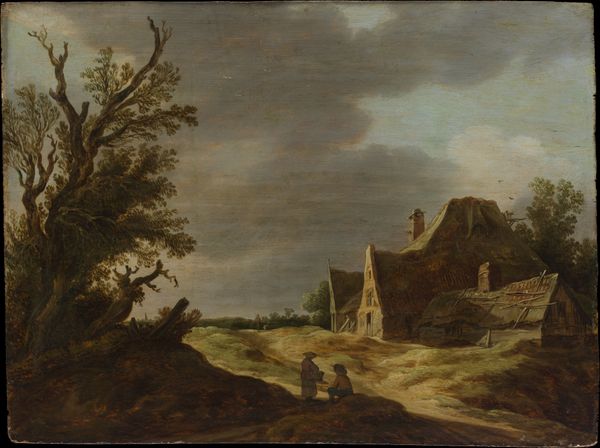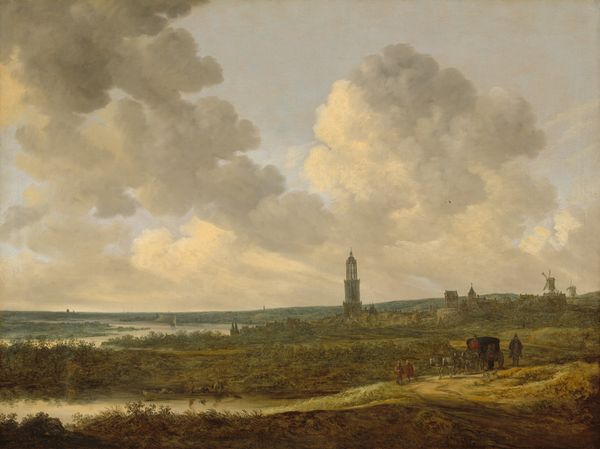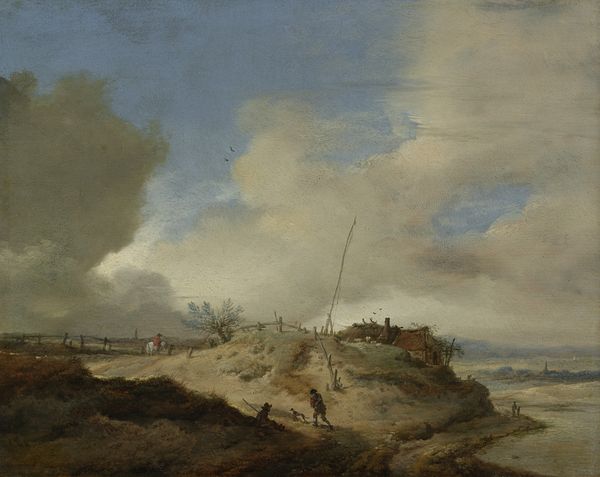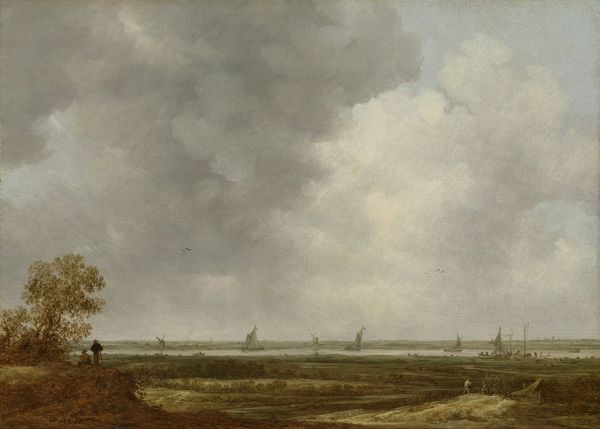
Landscape with a Plowed Field and a Village 1828 - 1843
0:00
0:00
painting, oil-paint
#
water colours
#
painting
#
oil-paint
#
landscape
#
romanticism
#
cityscape
#
history-painting
#
realism
Dimensions: 20 1/8 x 27 5/8 in. (51.1 x 70.2 cm)
Copyright: Public Domain
Editor: Here we have Georges Michel's "Landscape with a Plowed Field and a Village," created sometime between 1828 and 1843. It’s an oil painting that feels heavy with a sense of foreboding. The sky dominates the scene. What do you see in this piece? Curator: Beyond the aesthetic, I see a commentary on land, labor, and power dynamics in 19th-century France. Consider the romanticized portrayal of rural life juxtaposed with the looming presence of the village – most likely, the landowner's manor. Who benefits from this labor? Editor: So, you're suggesting that the beauty of the landscape masks a more complex socio-economic reality? Curator: Precisely. The painting invites us to examine the power structures inherent in the landscape. The plowed field signifies human intervention and exploitation of natural resources. Who owns that land, and what are the conditions of those who work it? Does this image perpetuate the romantic ideal or does it subtly critique it? Editor: I see what you mean. The vast sky could also represent the overwhelming forces shaping the lives of those working the land. Curator: Exactly. The almost oppressive sky, painted with such dynamism, isn’t just about atmospheric conditions. It could symbolize political and social unrest, reflecting the turbulent period following the French Revolution and the continued fight for land rights and social justice. How does Michel use the tradition of landscape painting to perhaps push against that very tradition? Editor: That’s a very different way of looking at landscape paintings. I’ve always seen them as…well, just landscapes. Curator: Art is never neutral. Exploring the historical and social context is a vital aspect to critically assessing the intent and effect of any work of art. Editor: This really gives me a new appreciation for this, and other, landscapes. Curator: And for how landscape as a genre reflects social histories, power dynamics and politics!
Comments
No comments
Be the first to comment and join the conversation on the ultimate creative platform.
